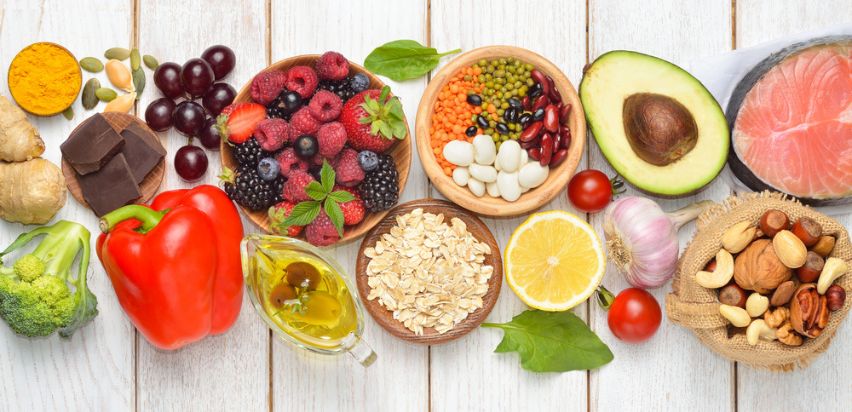Preventing Cardiovascular Disease: A Healthy Diet
Many factors contribute to the development of heart disease. Lifestyle and diet are areas where you can make a positive change.
With a healthy eating pattern and regular moderate physical activity, you can help improve the health of your heart. In this section we focus on some simple diet changes and advice.

Fat
One of the cornerstones of healthy eating is cutting down on the amount of fat in your diet. A high fat diet is usually associated with obesity and raised blood cholesterol levels, which are both risk factors for heart disease.
There are three main types of fat found in food:
- Saturated fat: mainly found in foods of animal origin. This type of fat raises blood cholesterol levels, which does not help your heart health.
- Polyunsaturated fat: mainly found in foods of plant/vegetable origin e.g. corn oil, sunflower oil. These can help lower your cholesterol level to help your heart health, as part of a balanced diet.
- Monounsaturated fat: ,ainly found in olive oil, rapeseed oil and spreads made from these. These can also help to lower cholesterol levels.
Ways to reduce your levels of saturated fat:
- Oven-bake, grill, poach.
- Stir-fry or dry-fry food, with a low-fat spray, instead of frying.
- If you are using oil, measure with a spoon - don't pour. Use no more than one to two tablespoons for a family.
- Buy the leanest cuts of meat and remove all fat before cooking.
- Use low fat dairy products.
- Reduce intake of confectionary foods, i.e. cakes, biscuits and pastries.
Fruit and vegetables
Fruit and vegetables contain high levels of antioxidant vitamins which can help protect against heart disease.
Aim for at least five portions per day, a portion is:
- One medium size portion of fresh fruit.
- Three to four dessertspoons of cooked vegetables or salad.
- One small glass of fruit juice.
- One bowl of homemade vegetable soup.
- Three dessertspoons of cooked/tinned fruit.
Oily fish
Oily fish are salmon, trout, herring, mackerel, sardines, kippers and fresh tuna and pilchards. These fish contain oils called “omega 3 fatty acids” which help prevent bloods clots and protect you from heart disease. Aim for two servings a week.
Salt
High salt intake is linked to high blood pressure. It is advisable for everyone to reduce their salt intake.
Ways of reducing your salt intake:
- Limit salt use in cooking and at the table.
- Choose fresh foods instead of processed foods and ready prepared meals.
- Eat fewer salty foods such as crisps, roasted nuts, processed meats and cheese.
- Low salt substitutes are not recommended.
Skip the Salt, Add Some Spice
Research shows that too much salt in our diets can increase our blood pressure levels and therefore increase our risk of a heart attack or stroke. Consuming too much salt causes the body to retain water, resulting in swelling, especially in the hands and feet.
Read more
Alcohol
High intakes of alcohol can be associated with high blood pressure, raised triglyceride levels, obesity and other health problems. If you drink alcohol, spread your intake over the week and have alcohol-free days. Do not drink more than the recommended levels.
- 21 standard drinks (men)
- 14 standard drinks (women)
A standard drink is the equivalent to:
- ½ pint beer/lager/cider
- 1 small glass (125ml) of wine
- 1 pub measure of a spirit







.jpg?sfvrsn=bc97231b_1)





